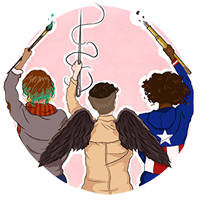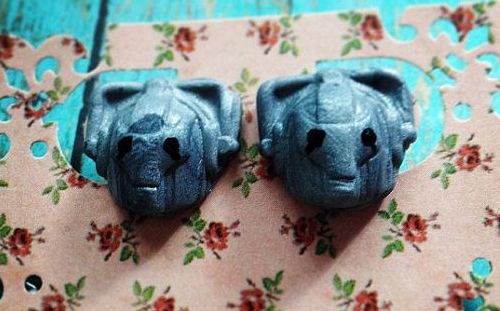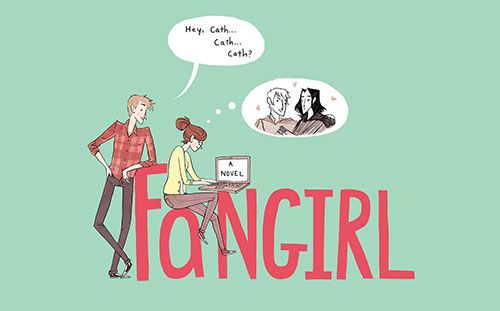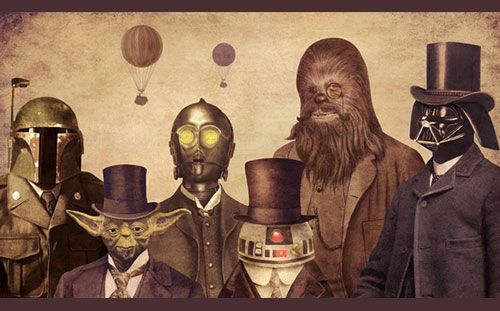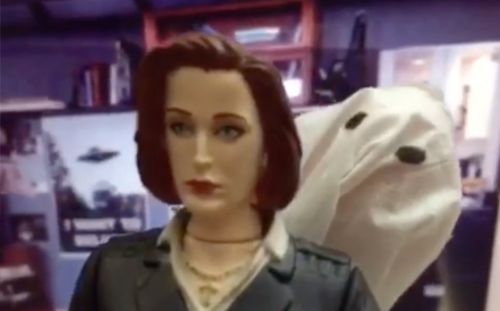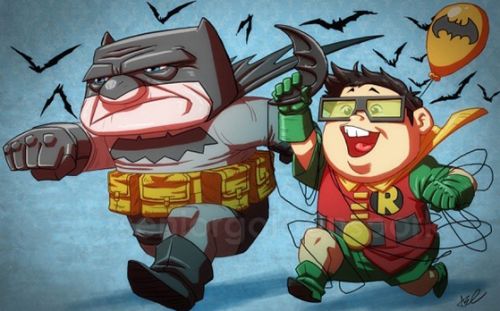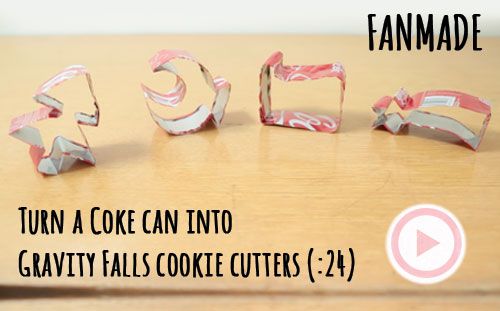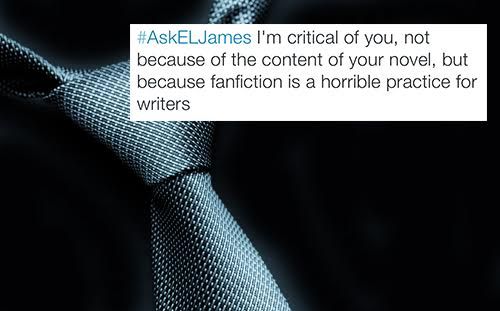The Girls Who Won’t Wait: Why we’re still mad about Amy Pond’s story
I had a book of fables when I was younger with morals in the back of all the stories. I never liked that book. That isn’t how stories work.. As if we read them so we won’t have to live them. As a kid, I dreamt of being the one the story was about, even if it meant being a cautionary tale: that sounded much better than keeping a list of lessons on life.
Five years after the premiere of “The Eleventh Hour” and I’m still not over Amy Pond.

Image Source: anxiouspineapples/DeviantArt
I keep thinking about Moffat as a writer—that he could create stories that I love alongside stories I hate. I think maybe he sees Amy Pond as a story about a girl who dreamed too much—a girl who wasn’t happy with what she’d been given. The moral of the story being that she got taken down a notch, that she learned humility. The story of a girl who wanted someone to save her from her boring life, the moral being that exciting people are dangerous. That what girls should do is go for the safe, the comfortable, the Rory Williams of the world.
Rory the wet blanket of the universe, Rory who exhibits little personality beyond being a worrywart and a partypooper, Rory the constantly intimidated, the hangdog, emasculated, defensive, overcompensating. Rory who Moffat seemed to think owned Amy in some way, Rory who the Doctor had to ask permission from if he wanted to hug Amy. We’re supposed to believe he’s the great romance here. But even the show never seems to buy its own lie.
“Who are you next to the Doctor?” The Dreamlord asks Rory, in an episode called “Amy’s Choice” that seems all about the men. It’s their dreams she’s choosing between, we don’t see any of her own. Rory wants Amy pregnant and cooking in his country cottage, the Doctor wants Amy as she is now, for endless adventures. Amy chooses Rory to save him from dying. But her emotional arc in this episode isn’t with Rory, it never really is. Who is Rory next to the Doctor? A plot device, an excuse for Amy and the Doctor to have emotional scenes in his presence.
Amy is rewarded in the end by Rory loving her, Rory loving her for 2000 years. Of course what all girls want is a boy to love them. Of course all a boy needs to do is be in love.
Amy and the Doctor are both punished for choosing each other over. Amy by having her choices taken away, the Doctor by feeling sad about it. Rory is never punished. Rory is good. Rory loves Amy. Rory is always there, in the background, waiting around for other people to be interesting.



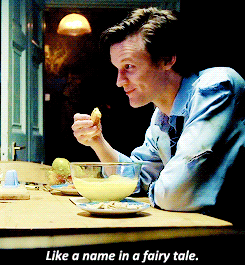
Gif Source: doctorspond/Tumblr
There are so many stories about mad, impossible girls told by the boys who fall for them. The girls are wonderful, the boys are not. The girls are a dream, the boys are the dreamers. These stories don’t generally exist in any genderswapped forms. Mad, impossible boys are not a prize that girls get to win by proving themselves, not in our modern canon.
My favorite fairy tales were always the ones where the girl had to rescue the boy, by embarking on some kind of quest. East of the Sun and West of the Moon, Tam Lin, The Snow Queen, The Seven Ravens. It always turned out that the boy was something special--a prince or a king--and the girl was just a girl. It was always implied, if not outright said by the other characters, that the girl had it wrong, that her feelings were one-sided. Why is she chasing after him? Does she really think she deserves him? Don't you know it's pathetic, to be chasing after a boy so far above you? How do you know he didn't leave because he wanted to? How do you know he doesn't want to stay with the witch? Who are you to try and claim him?
Have you ever fancied someone you shouldn't? It hurts, doesn't it? But in a good way.
I was studying abroad in Scotland when the first season came out. A girl in the dorm kitchen and I got to talking about it.
"I don't like the whole romance thing they're trying to do,” she said.
"Really? I'm kind of into it." An understatement. I loved it.
"But the Doctor loves Rose. Everyone knows that she was it for him."
"It's a whole different Doctor now, though. Doesn't he kind of become a new person, with every incarnation?"
I didn’t really care about the reasons. This was television, of course there should be a romance. Why should only this one have to justify itself?
"I guess. But the Doctor isn't supposed to be interested in romance anyway. That's not what the show is about."
She left with her food and I stayed to make crumpets and sulk. It wasn’t anything I hadn’t already encountered on the internet. “True Fans” wanted to have it both ways, it seemed to me. Either the Doctor was in love with Rose and only Rose, or he wasn't in love with anyone because the show wasn't about romance. David Tennant wasn't my doctor, anyway. I had started with Matt Smith, and I couldn't help but prefer his version. Which made me not really a True Fan, because True Fans liked Tennant, and they like Rose, and thought Moffat's writing was a terrible stain upon their beloved series. I had a lot of problems with Moffatt, but I couldn't deny that he was writing stories I was interested in. Fairy tales that were set in space, dreamy and real all at once, where good battled evil and Amy and the Doctor were the only ones who could save things, even if they couldn’t always save everyone. Even if I didn't always like the way things ended.
Moffat wrote Amy like he felt the same way about her that these fans did--like he thought she was tragic and stupid for loving the Doctor, like it was a given that she had no chance with him. Who was she to try and claim him? And yet she did have a claim on him. Mad, impossible Amy Pond, the Doctor said. And you could tell when he said it, whether it was scripted or just a case of character bleed, that he loved her. You could forget that all this was doomed, that it all had a time limit, because in those moments, it was only them that mattered, in all of time and space. They were the real story.
Moffat's problems with women became more apparent to me as the series went on. Amy was a child who didn't know what she wanted, or a bitch who used and abused the love of a good man. She flirted too much and gave too much away and it would serve her right to have her heart broken. She was a woman, after all, and she was just putting off the inevitable, because women's futures must include marriage and babies and domestication, or else ruin.
I remember she was first introduced, reviewers complained about a lack of depth to Amy Pond. But in the old fairy tales, what did you know about the girl? That she was poor and overlooked in her hometown, but once given a chance to prove herself she was brave and cunning and determined. She could be anyone, she could be you. What do you need a backstory for, anyway, when you have those moments — moments large enough to fill an entire epic. The girl who rides on the back of a bear, the girl who runs with urchins and carries nothing but bread and a stool, who tricks the witch into letting her inside the castle, the girl who cuts off her own finger to pick the lock — the girl who hears a noise in the garden and serves custard to the unknown — she is a Heroine. The whole world is her backstory.
Amy brings the Doctor back from oblivion by remembering him when no one else will. Like Janet holding onto the snake, she clings to the Doctor she knows, the Doctor she loves, and she saves him. Maybe it didn't matter that it happened at a wedding she had never seemed particularly excited for, that we knew she wouldn't be allowed to keep him, that we wouldn't be able to keep her. This show is about the Doctor, not the Amys of the universe.
I stopped watching sometime in the middle of series seven. I was never a True Fan anyways, and I just couldn't stomach the way the show went on without her. The way she had to die, the way women in stories always have to die, so some man can be sad about it.

credit: jessraneeart/Etsy
“Oh, I'm always ripping out the last page in a book. Then it doesn't have to end. I hate endings.”
When the Doctor comes to see Amy again after a number of years, we see her face on a billboard with the slogan “For the girl who’s tired of waiting.” I was excited for a moment, thinking that we were going to see Entrepreneur Amy, an Amy who had made a name for herself, mad impossible Amy Pond being successful, even if she couldn’t be a time traveler.
But it turns out Amy had been doing some modeling, and she was not well treated, and her husband didn’t like it. What does it say about Moffat that this is the story he chooses to tell about Amy? This is the big reveal of her adult life: Once again she is someone else’s fantasy, the face but not the substance, with Rory jealous of the attention others give her. Amy eventually finds her career in writing the kinds of wonder stories she herself lived. Amy’s fate is not to live the stories, but to record them. In a show that trades in miracles and larger-than-life heroes, Amy Pond doesn’t get to be the heroine, just the one the hero traveled with for a while. Only the Doctor gets to keep on being adventurous and wild and worthy of stories.
If Amy is Moffat’s idea of fairy tale, I’m not sure I want to keep reading the rest of the book.
- How one fan is making the Supernatural fandom docu...
- #Everyday Cosplay: Channel your inner Rufio every ...
